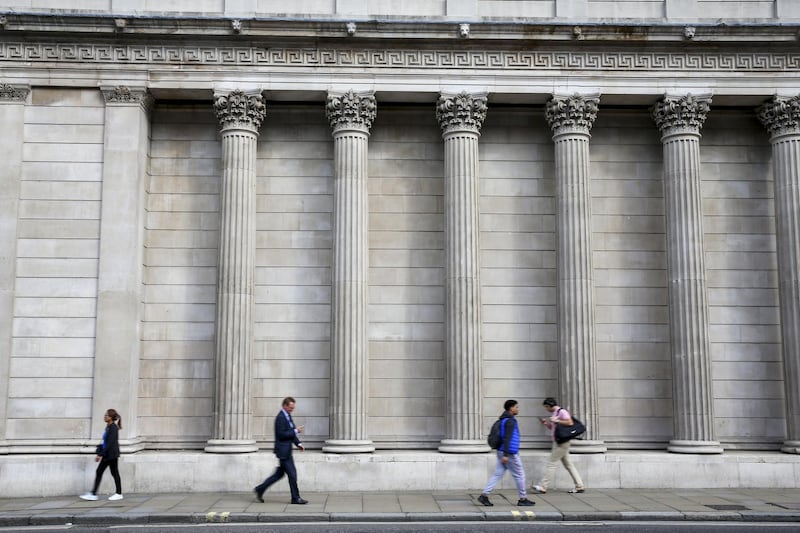The UK is considering delaying two key announcements in the latest sign that Prime Minister Boris Johnson’s government is on an election footing.
Chancellor of the Exchequer Sajid Javid may wait to name a successor to Bank of England Governor Mark Carney until after Britain’s planned October 31 departure from the European Union, according to a person familiar with the process, who asked not to be identified because they were not authorised to speak on the matter.
Javid may also have to postpone his next budget to 2020 if the government is forced into a general election next month.
Carney steps down at the end of January, after he twice extended his tenure to provide continuity during the split from the EU. Previous chancellor Philip Hammond had said a new appointment would come in the autumn, and a Treasury spokesman said on Tuesday that is still the expectation.
Still, as Britain heads toward a potential no-deal Brexit, the signs are mounting that Prime Minister Boris Johnson is preparing the groundwork for a general election with promises of extra billions for the National Health Service and crime-fighting.
Johnson has said he’s committed to delivering Brexit “do or die” on Oct. 31, without an agreement if necessary. The government privately accepts an election is inevitable, according to one official.
Opposition Labour leader Jeremy Corbyn plans to hold a vote of confidence in Johnson’s administration soon after returning from summer recess, and has asked rival parties to support him as a caretaker prime minister who would then call a general election. If an election is triggered, the government cannot hold a budget.
Officials would also be unable to start the process of economic forecasting that is integral to each budget. The Treasury is usually required to give the Office for Budget Responsibility 10 weeks’ notice to prepare its forecasts. Doing so during an election period could break purdah rules because it would make an assumption about who would win.
To provide some certainty, Javid is currently conducting a short spending round that will set budgets for all government departments for next year. That will also allow the Treasury to allocate funding without the approval of Parliament. Johnson’s government is trying to avoid bringing any legislation through parliament over fears that opponents will amend it to take control of the order paper and derail its plans to deliver Brexit.
Treasury officials have been conducting interviews for the BOE job, and a shortlist was drawn up by Hammond before he stepped down last month. Javid has yet to narrow the list down to the final candidates and is flexible on the timeline for the appointment, the person said.
Potential candidates for the next Bank of England governor include insiders such as Andrew Bailey, the head of the Financial Conduct Authority, and Deputy Governor Ben Broadbent. Some high-profile figures -- such as former Reserve Bank of India Governor Raghuram Rajan -- have indicated that the political complexity surrounding Brexit made the job unappealing.






